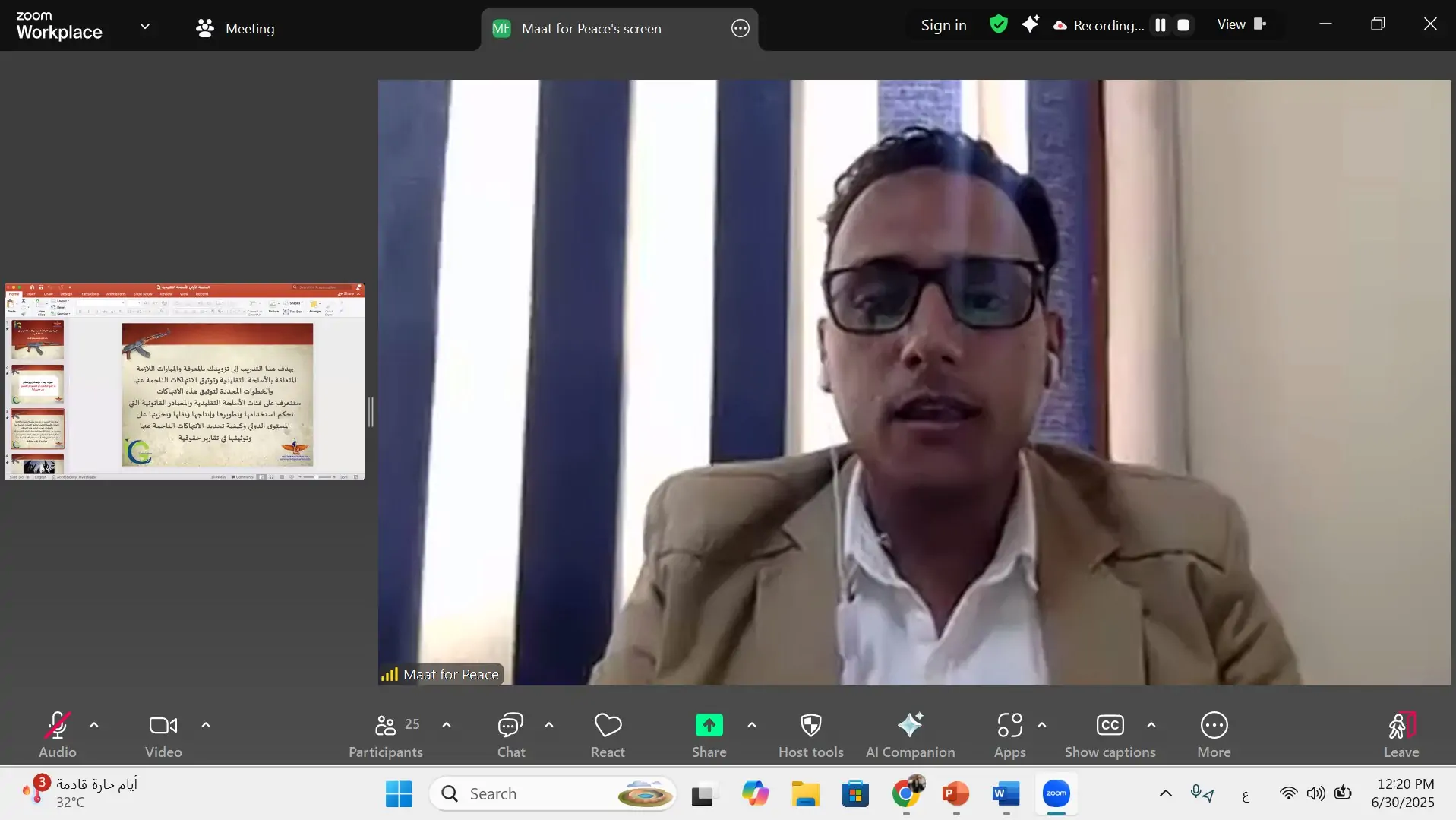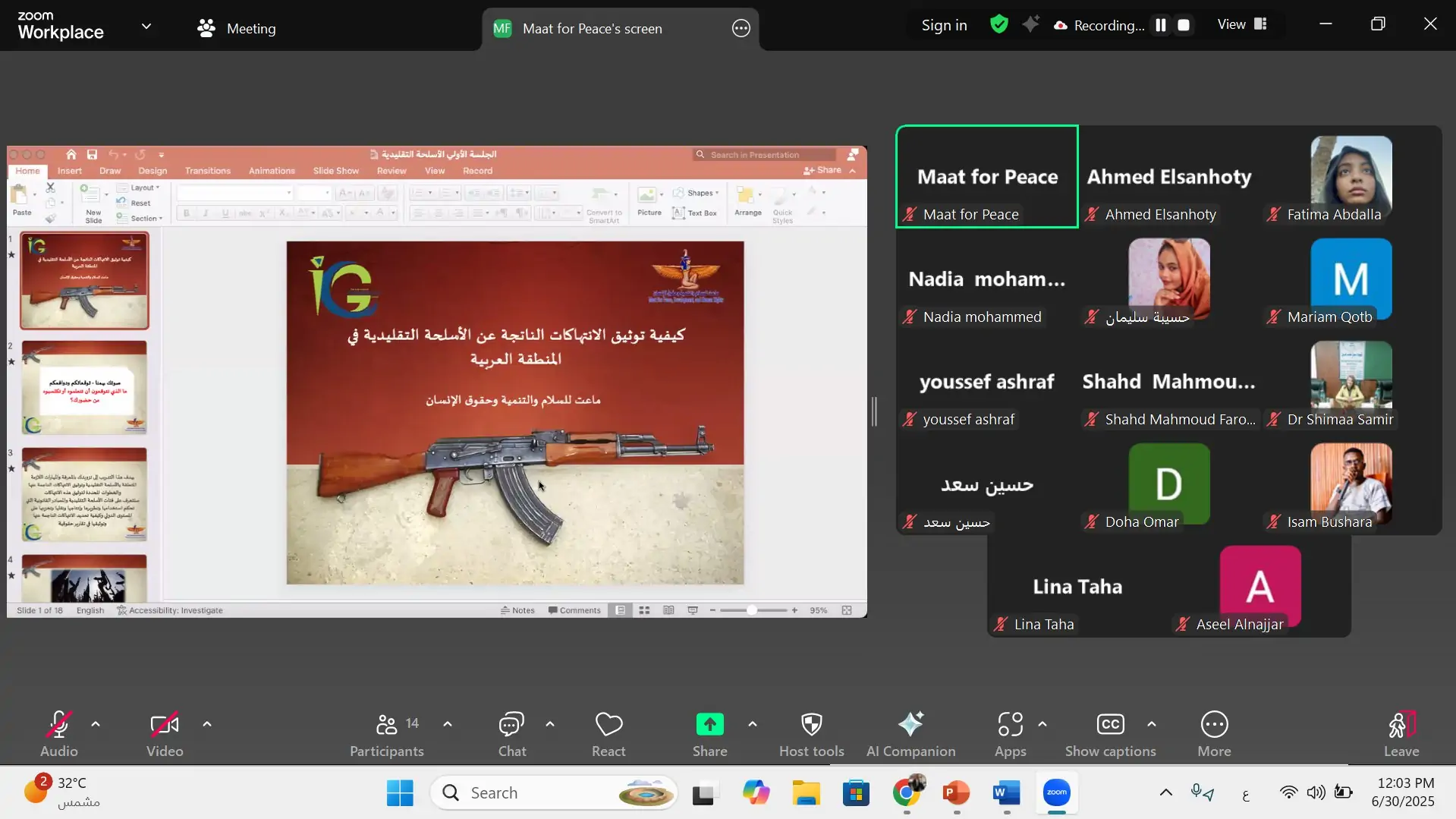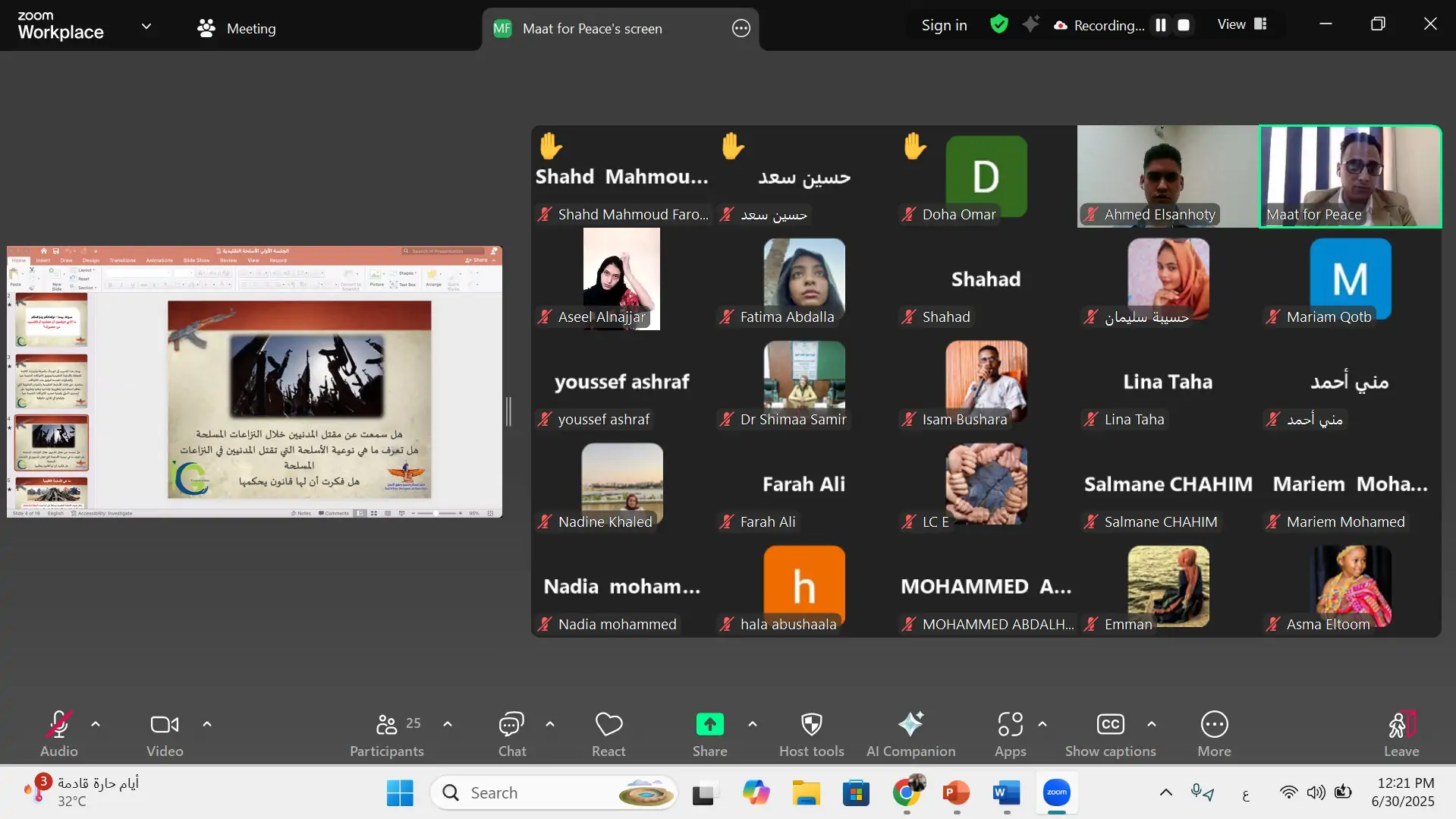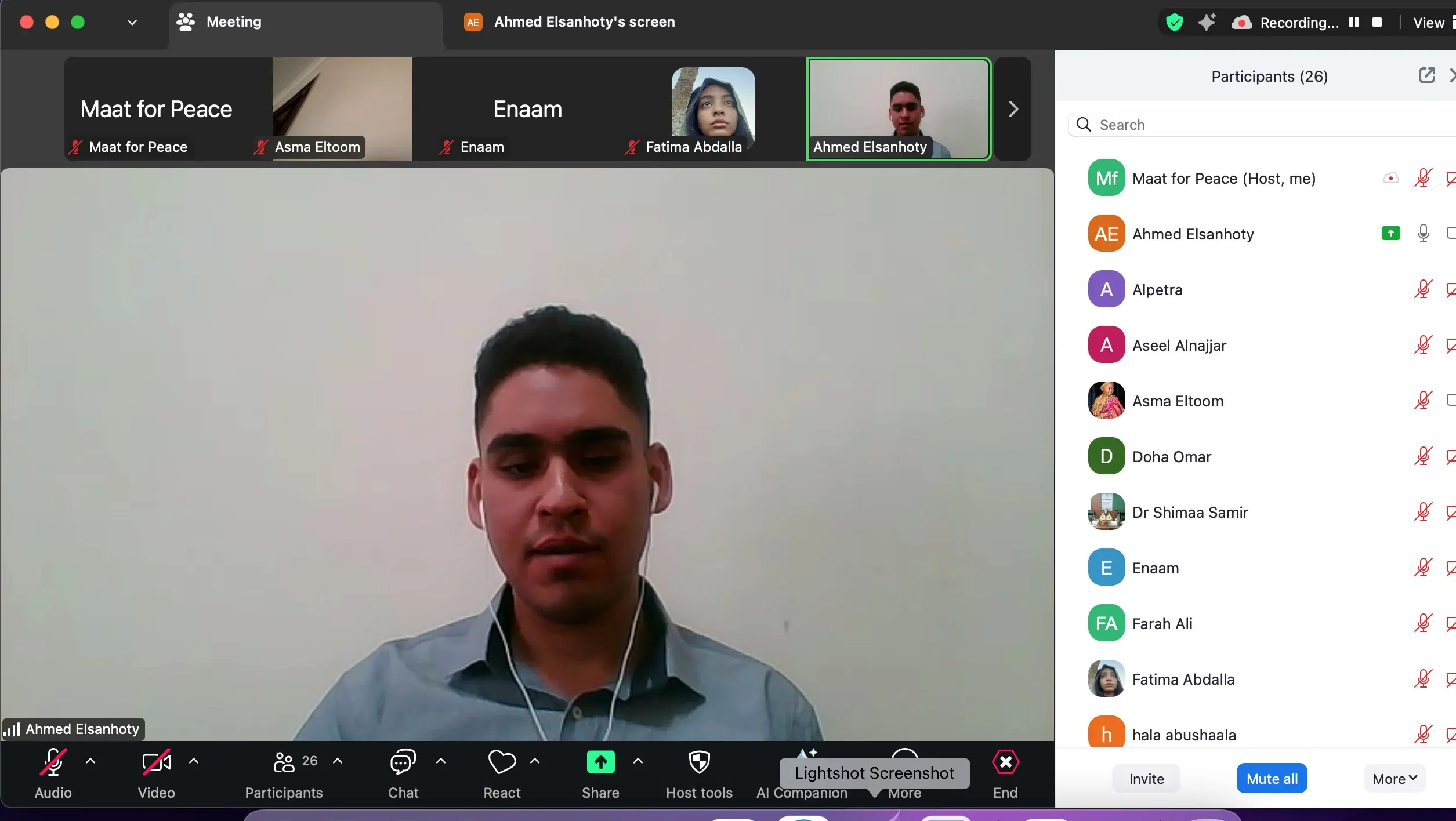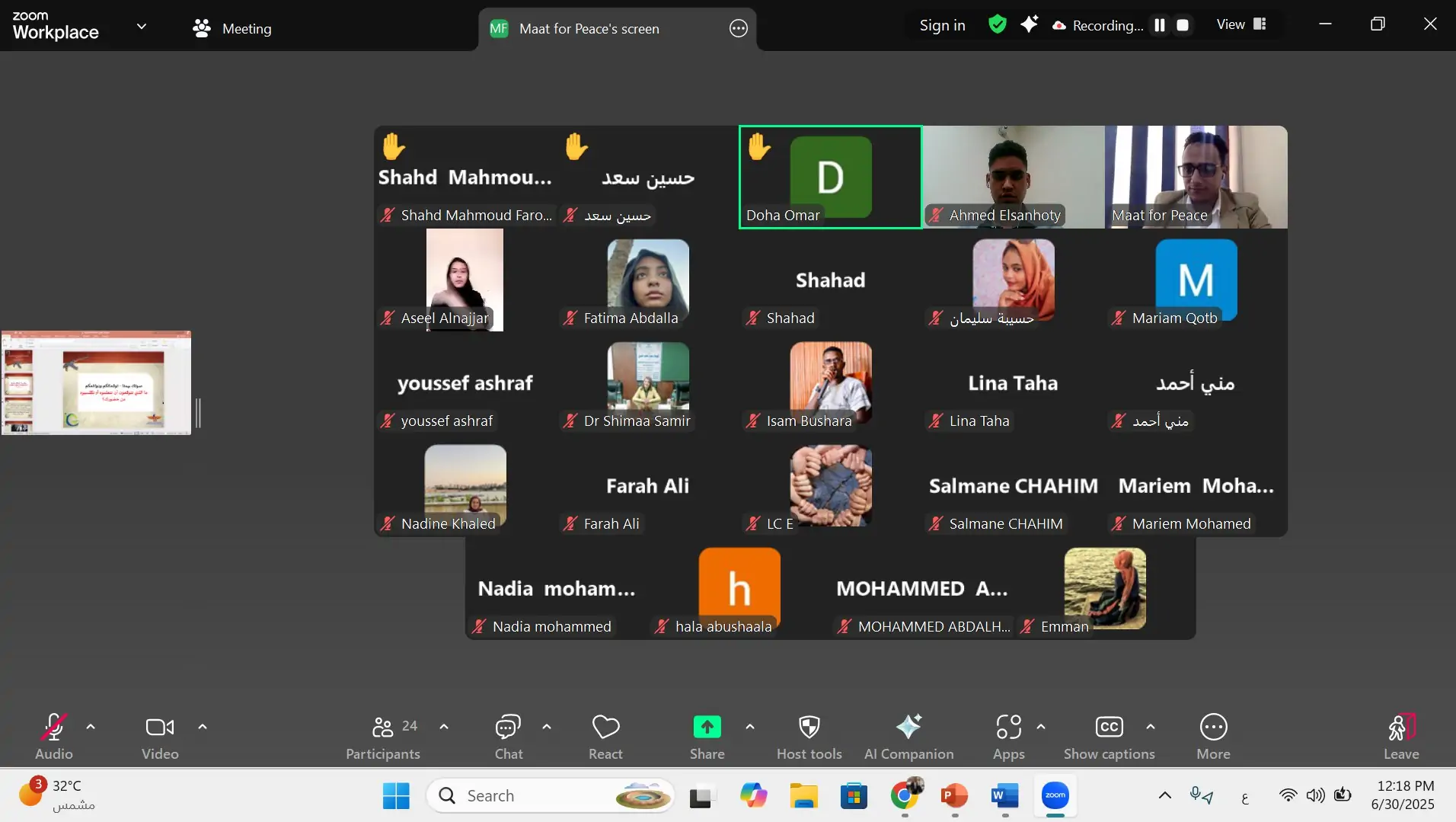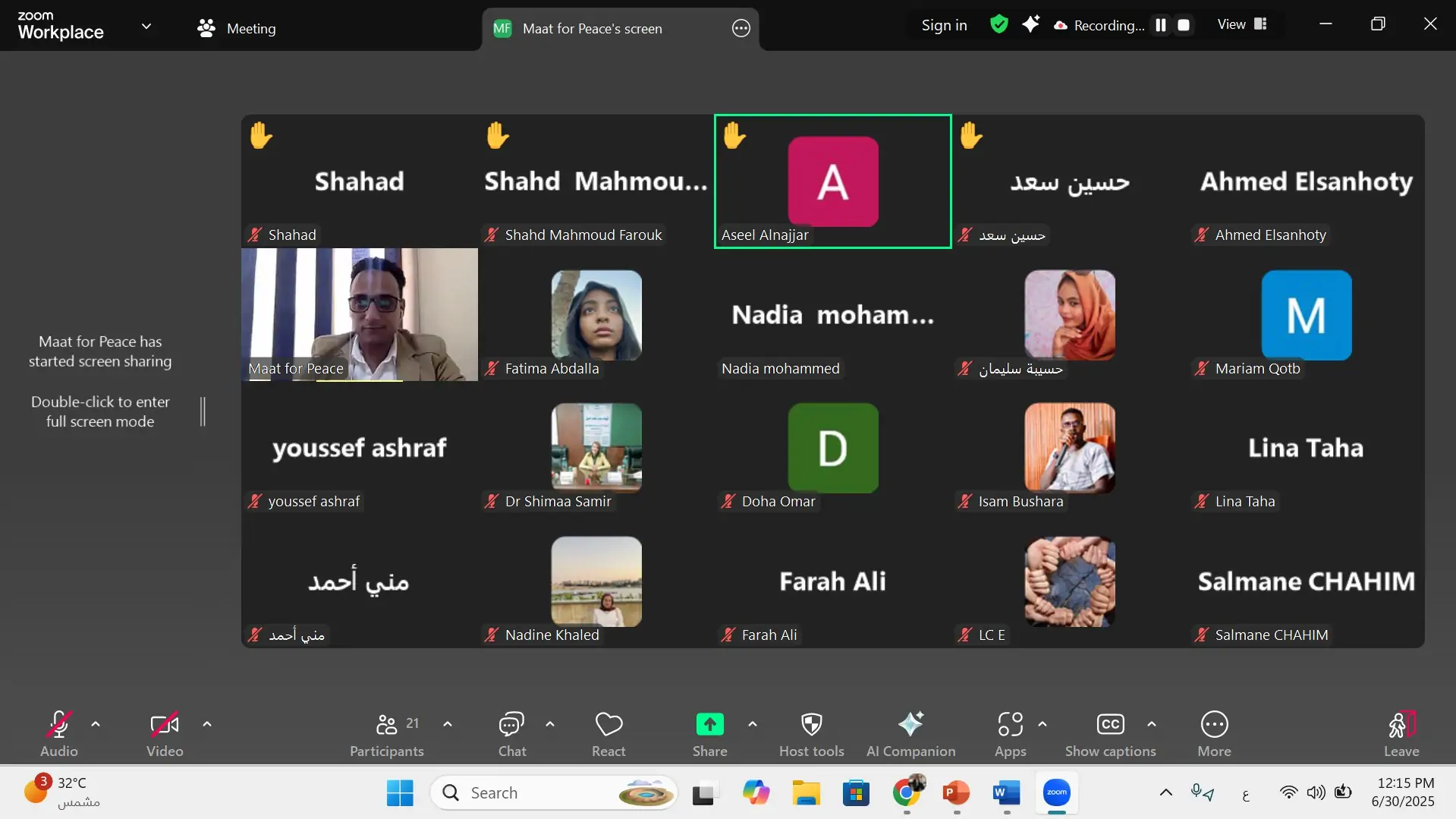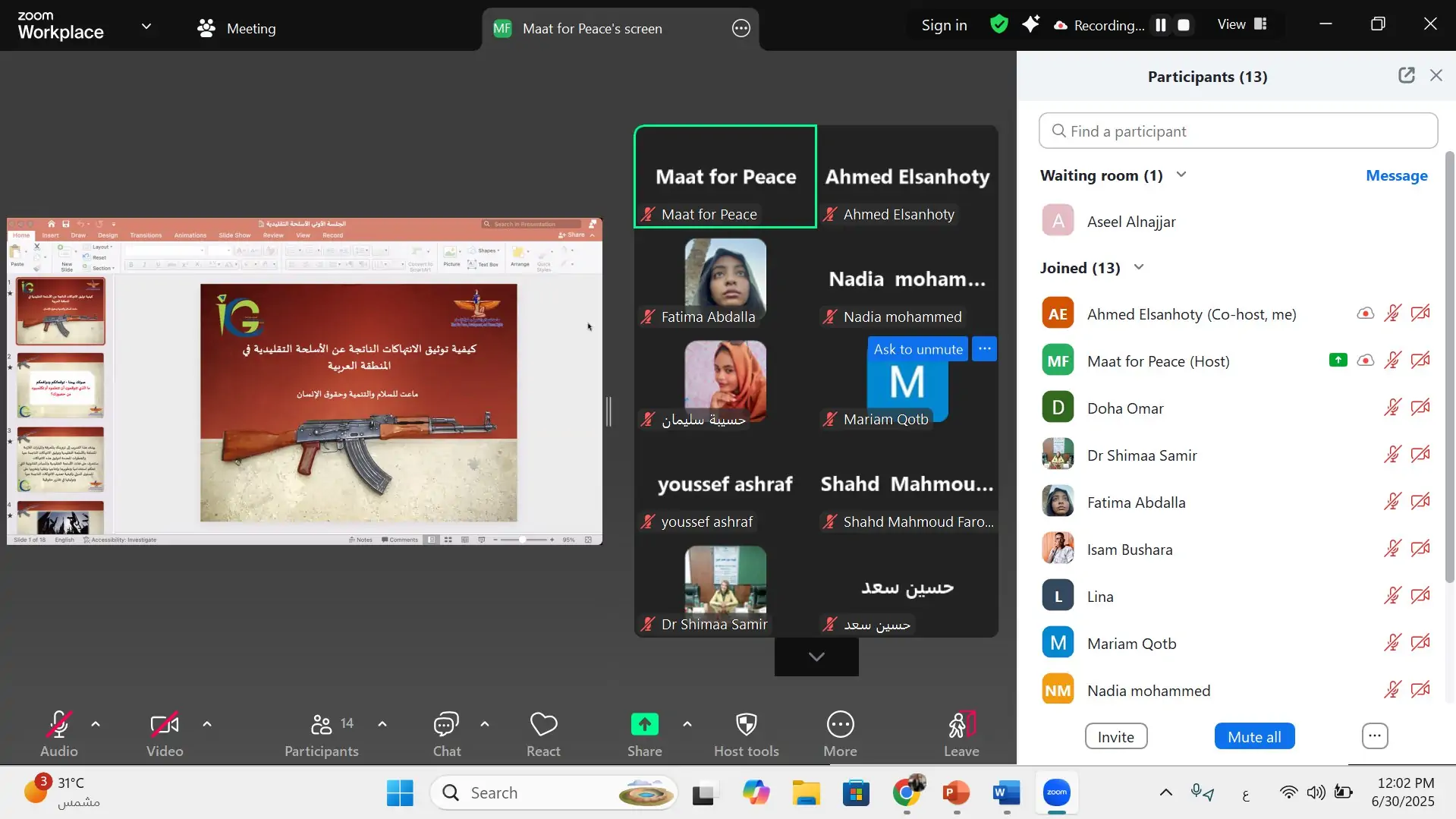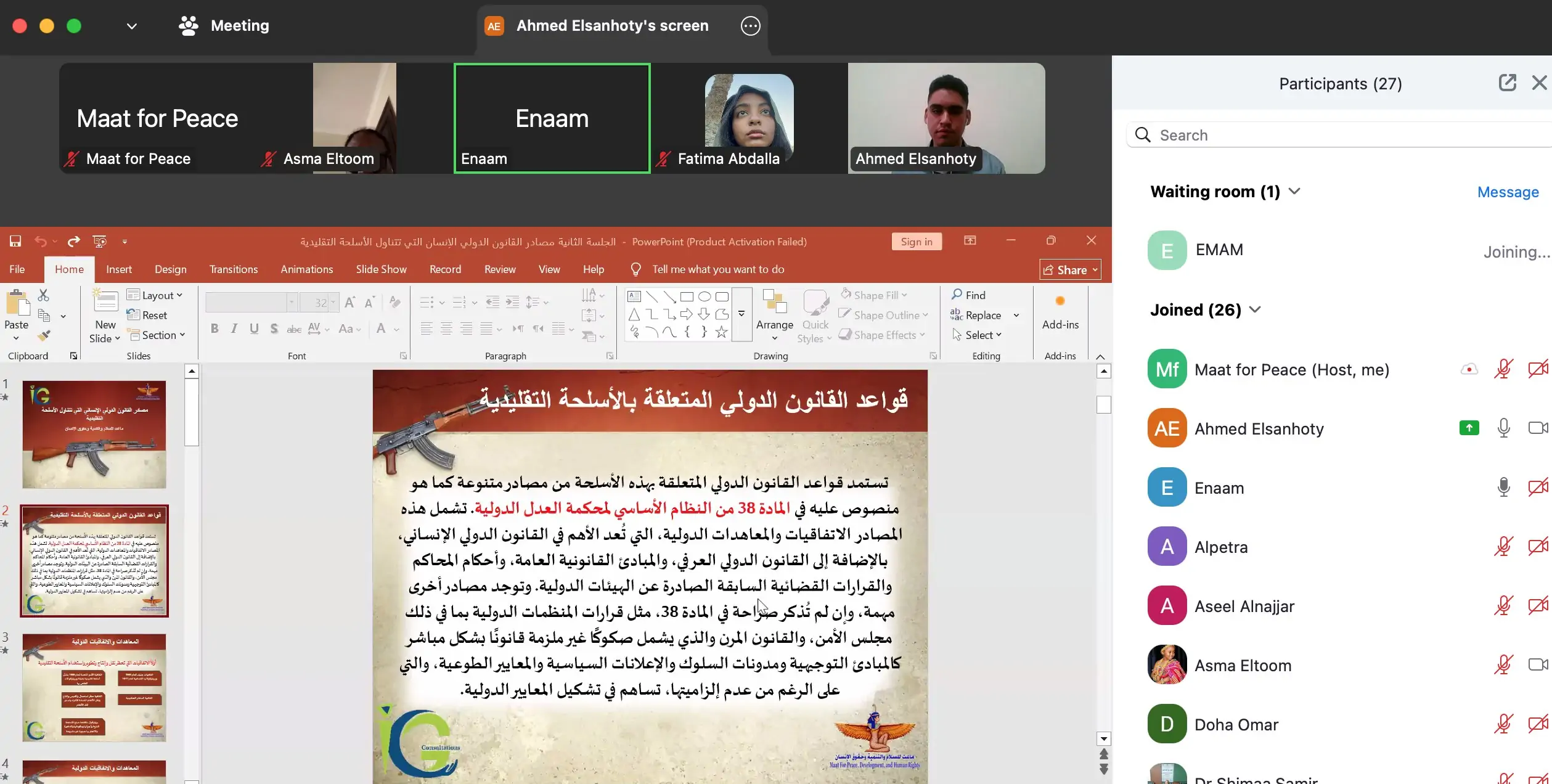Maat for Peace, Development, and Human Rights, in collaboration with the International Consulting Group for Training and Legal Work, organized a specialized training workshop titled "Documenting Violations Resulting from Conventional Weapons in the Arab Region." This event took place via Zoom, with the participation of university students, civil society organization workers, and journalists from various Arab countries.
The workshop aimed to enhance knowledge about the reality of conventional weapons in the regional context and to differentiate between their various categories, including weapons prohibited for use and development under international law, such as cluster munitions and landmines, as well as weapons allowed to be traded under strict conditions to prevent their access to terrorist groups or governments involved in serious violations of international humanitarian law.
The training also addressed the legal references governing the issue of conventional weapons, including international treaties and agreements, and shed light on methods for documenting violations related to their use. This includes identifying the nature of the violation, its location, the parties involved, its date, and the resulting humanitarian impacts.
In the opening speech, Ayman Okeil, Chairman of Maat, emphasized the importance of raising awareness among Arab youth about the international legal framework regulating conventional weapons. He stated, "The escalation of armed conflicts and systematic violations of international humanitarian law in our region imposes an ethical and professional obligation on us to raise awareness, not only among specialists but also among all stakeholders, including activists, journalists, and civil society, as awareness is the first step towards accountability and achieving justice."
Okeil also mentioned that Maat intends to expand its training programs in the field of disarmament as part of a strategy aimed at building the capacities of local and regional actors and enhancing coordination in monitoring and documenting violations related to the use of weapons.
During the workshop sessions, Mohamed Mokhtar, Director of the International Humanitarian Law Unit at Maat, explained that conventional weapons are classified into two main categories: the first includes weapons prohibited for use, production, or development due to their catastrophic humanitarian effects, and the second includes weapons that are allowed to be traded internationally under legal conditions and restrictions that limit their access to unlawful parties. Mokhtar affirmed that documenting violations relies on a precise methodology that includes evidence collection and determining the legal context for each case.
Additionally, Ahmed Elsanhoty, Deputy Director of International Humanitarian Law Unit, discussed the legal references governing the issue of conventional weapons, reviewing Article 38 of the Statute of International Court of Justice, which serves as a primary source in international law and includes international agreements, customary international law, general legal principles, as well as judicial precedents. Elsanhoty also highlighted the importance of "flexible law," such as guidelines and voluntary standards, in establishing international behavioral norms in disarmament.
This workshop comes as part of Maat commitment to promoting a culture of respect for international humanitarian law and expanding the circle of stakeholders involved in documenting violations in the Arab region, supporting accountability efforts and enhancing civilian protection in times of conflict.
shortlink: https://maatpeace.org/en/?p=45056


